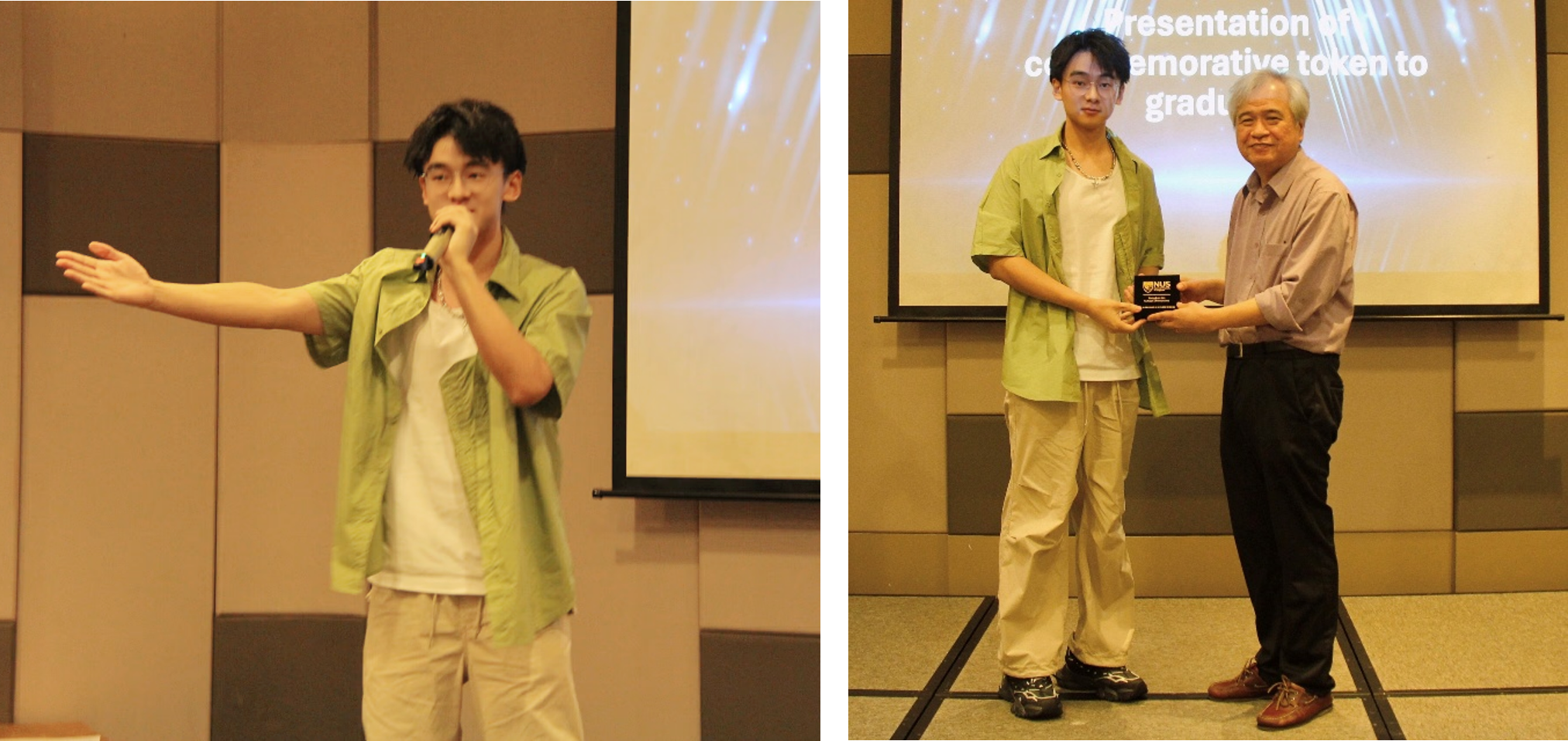Finding My Path: From Pharmacy Lab to Pharmaceutical Investment
13 May 2025
This philosophy has guided my unconventional career journey from pharmacy laboratories to pharmaceutical investment analysis. While these fields might seem disconnected, my education in Precision Health and Medicine (PHM) created the perfect bridge between my scientific foundation and investment aspirations.
Discovering My True Calling
My academic journey began with undergraduate studies in pharmacy, where I spent countless hours conducting laboratory experiments with mice. Though I valued this scientific training, an internship in investment sparked something different—a genuine enthusiasm that I immediately recognized as my true calling.
While vastly different from my laboratory work, I discovered that successful pharmaceutical investment demands specialized knowledge—particularly in-depth analysis of companies' R&D targets and drug pipelines. This realization helped me see how my scientific background could provide a competitive advantage in the investment world.
The Precision Medicine Revolution
My career transition coincided with a fundamental shift in pharmaceutical development—the evolution from broad-spectrum therapies toward precision medicine. MSD's Keytruda exemplifies this transformation, becoming the world's top-selling drug by precisely targeting cancer cells rather than following traditional chemotherapy's indiscriminate approach.
This revolution—powered by emerging technologies like antibody-drug conjugates, bispecific antibodies, and T-cell engagers—convinced me to deepen my understanding of precision medicine principles to better evaluate investment opportunities.
The PHM Programme: Building Specialized Knowledge
The Masters in Precision Health and Medicine programme at NUS aligned perfectly with my needs. The curriculum provided critical knowledge in disease biomarkers, cell therapies, stem cells, and other cutting-edge technologies reshaping medicine.
Through persistent effort—presentations, consultations with the professors, and collaborative projects—I gradually built confidence in these new skill areas. The programme's interdisciplinary nature challenged me to think beyond traditional pharmaceutical analysis, preparing me for the increasingly complex intersection of healthcare, technology, and business.
What makes this education particularly valuable is its direct application to my work. When analyzing pharmaceutical companies today, I recognize most R&D targets from my PHM studies. This translates to more informed evaluations of emerging technologies like mRNA vaccines, stem cell therapies, CAR-T drugs, and PD-1/VEGF bispecific antibodies—ultimately leading to better investment decisions.
Personal Transformation
Perhaps most surprising was my personal growth. At our year-end celebration, I performed an English song for the first time—an unprecedented challenge for someone who had never sung in English before. The enthusiastic support from friends I'd made during my PHM journey symbolized my newfound confidence and marked a perfect conclusion to my master's experience.

Making Career Choices Aligned with Passion
After graduation, I received multiple offers spanning business development at large pharmaceutical companies, hybrid tech-medicine positions, and investment roles. I ultimately chose a position at a smaller investment firm that, while not offering the highest compensation, provides the freedom to pursue my interests and career aspirations.
This choice reflects how the PHM programme helped me clarify my professional values. The specialized knowledge and broader skill set I developed have proven invaluable in analyzing pharmaceutical innovations and investment opportunities.
Advice to Future Students
For prospective students considering this programme, I encourage you to embrace its interdisciplinary challenges. The PHM programme does not just prepare you for existing roles—it equips you to navigate and lead in an evolving healthcare landscape where precision medicine approaches are transforming patient care and creating new opportunities.
My journey demonstrates the importance of following our heart and passion—even when it leads to an unconventional career path.
About the student
Student: Mr Liu Zihao
Programme: 2024 MScPHM without Capstone

